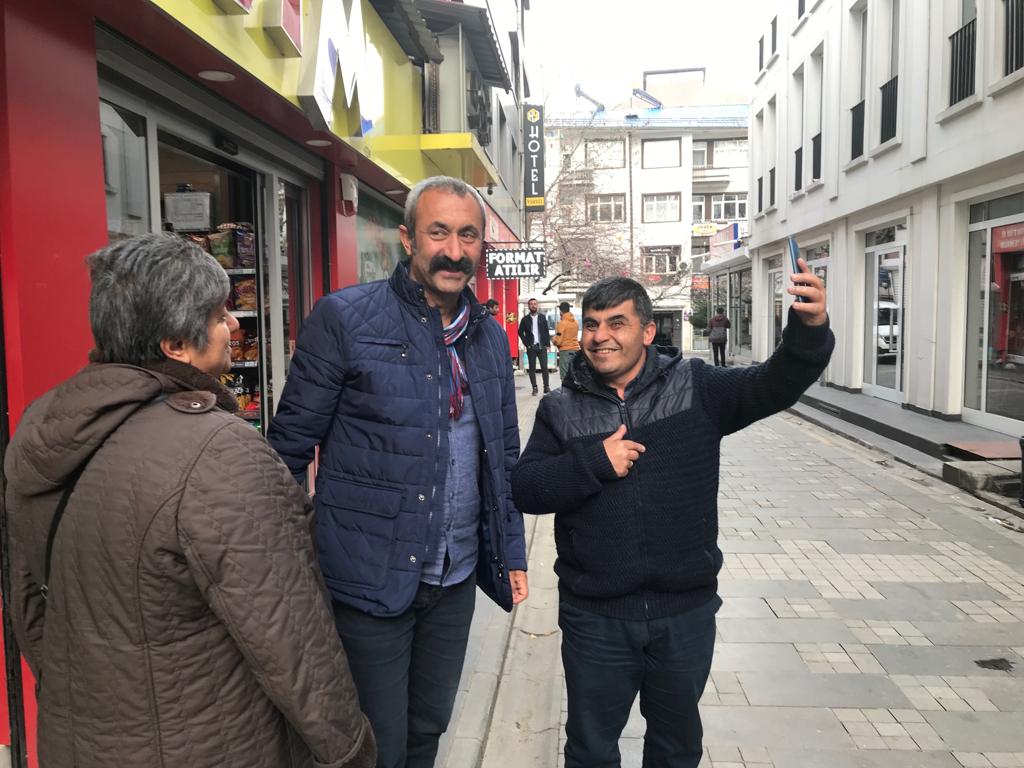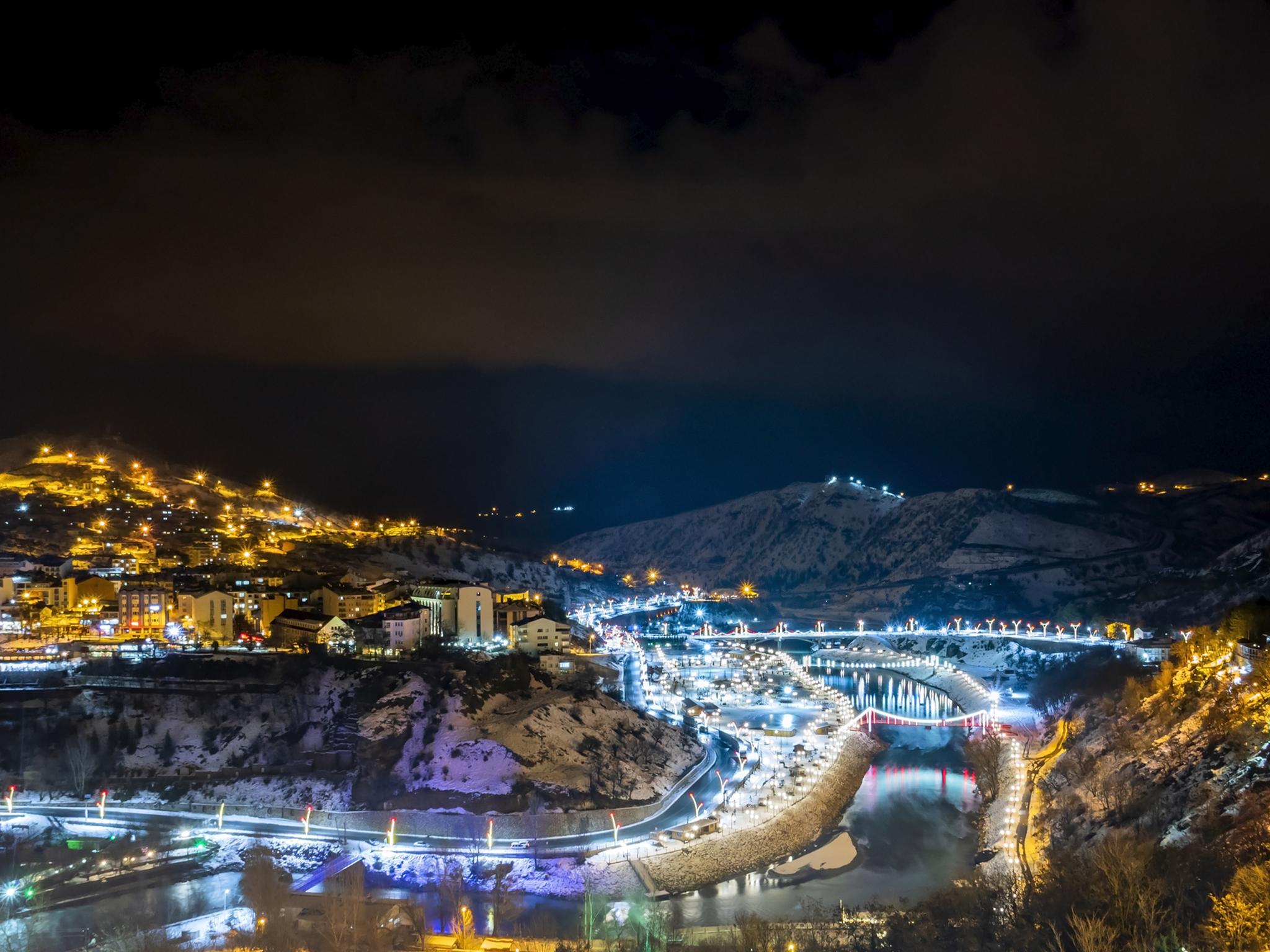‘Basic needs should be met for free’: Turkey’s new communist mayor wants to create a model socialist city
‘What we’re trying to do is to make the small dreams of people come true,’ Fatih Mehmet Macoglu says
Your support helps us to tell the story
From reproductive rights to climate change to Big Tech, The Independent is on the ground when the story is developing. Whether it's investigating the financials of Elon Musk's pro-Trump PAC or producing our latest documentary, 'The A Word', which shines a light on the American women fighting for reproductive rights, we know how important it is to parse out the facts from the messaging.
At such a critical moment in US history, we need reporters on the ground. Your donation allows us to keep sending journalists to speak to both sides of the story.
The Independent is trusted by Americans across the entire political spectrum. And unlike many other quality news outlets, we choose not to lock Americans out of our reporting and analysis with paywalls. We believe quality journalism should be available to everyone, paid for by those who can afford it.
Your support makes all the difference.From collective farming to free public transport, the man described as Turkey’s first communist mayor wants to be a model for other socialists around the world.
Fatih Mehmet Macoglu has big plans for agriculture, transportation, and tourism projects to stimulate the economy, create jobs and prevent young people from drifting away from the city of Tunceli to big cities.
The 51-year-old former laboratory technician wants to help the poor and the downtrodden, and to right the wrongs in this picturesque mountain city of 70,000.
“The world’s resources are being wasted,” he tells The Independent in an interview in Tunceli city hall. “Half the world’s wealth belongs to just a small number of people, and makes people feel there’s no possibility of justice and equality. We as socialists want to show policies against this mindset are possible.”
He’s travelling to the UK in a couple months to meet with constituents abroad, hoping to spread the word about how progressive politics can appeal to the masses in rural Turkey, and beyond.
But before he can can do any of that, he has to hear out Tuna Seda, a 30-year-old local schoolteacher who pins him down in his office. She urgently wants to block a noisy wedding hall from being built on the ground floor of her apartment building.
“I want to sleep,” she implores the new mayor, a bonafide member of the Communist Party of Turkey (TKP), shovelling a packet of petitions and letters into his arms. “There’s a lot of noise already and it’s just at the beginning stage of construction.”
Macoglu made waves across Turkey on 31 March when he was elected mayor of the city, which is called Dersim in the local Kurdish-dialect Zaza.
With a thick, bushy moustache that someone mischievous might liken to that of Joseph Stalin, he has become something of a political celebrity.
On the streets of Tunceli, a scenic mountain town criss-crossed by rivers, he was swarmed by well-wishers for selfies, handshakes, hugs or even quick conferrals about city problems – including unemployment, which city officials say has reached 60 per cent.
The city had been run by a mayor from the Kurdish-led People’s Democratic Party (HDP) until 2016, when authorities in Ankara deposed the elected co-mayors on vague terrorism charges and imposed a trustee to oversee the city’s affairs. The government-appointed mayor, a loyalist to President Recep Tayyip Erdogan had built a concrete wall around city hall for security and oversaw a clampdown on political freedoms.
“This is a place where people are under so much political pressure,” says Canan Ay Dogan, a deputy mayor. “When the trustees came in 2016, the security measures were tightened across the city. And they made people feel so uncomfortable. This created tension in public spaces.”

Macoglu won the mayoralty with about 33 per cent of the vote, besting the 28 per cent the candidate of the leftist, Kurdish-led HDP and the 20 per cent of centre-left People’s Republican Party. The candidate of Erdogan’s Justice and Development Party won only 14 per cent of the vote.
Just days after receiving his official mandate as mayor, Macoglu had the walls around city hall torn down, and the X-ray machine removed, saying he wanted to get rid of “obstacles” between the government and the people. He is also is planning to sell off the city’s official cars, and drives himself back and forth to work.
On a recent visit to Tunceli, dozens of well-wishers and citizens with local concerns – like Seda – drifted in and out of the building and of Macoglu’s offices, which were filled with congratulatory bouquets from businesses and luminaries.
Macoglu had already won a measure of national acclaim as district mayor of a neighbourhood in Tunceli called Ovacik. When first elected in 2014, he vowed in an interview with the newspaper Cumhuriyet to visit Cuba, China and Venezuela “to analyse the success of communist administrations” and “prove in Turkey that communism is not the bogeyman”.
His ideas and policies veered towards the pragmatic.
He posted the neighbourhood’s balance sheet on a banner outside the municipality building. He set up free public transportation corridors to shuttle passengers from home to work and a cooperative to produce and sell local produce.
He provided a measure of financial support to teachers fired from their jobs by Erdogan in a crackdown that followed a 2016 coup attempt, helping them to set up dairy and beekeeping businesses.
Most successfully, he established a scheme to plant chickpeas, potatoes and beans on state-owned land and then use the proceeds to fund scholarships for poor youth.
He now wants to expand his programmes to the entire city, by for example, establishing free public transport along certain downtown routes.
“We want to improve the quality of life for everyone, but we must support poor people,” he says. “Basic needs should be met for free. That’s my basic idea.”
One programme he hopes to launch is to give villagers seeds and let them plant on public land repurposed as collective farming areas. “We want to create farming areas so that people can grow their own produce,” he says.
He said he’s also keen on drawing more tourists, and hopes to create a number of cultural events, better market the natural beauty of Tunceli, and lure visitors curious about the region’s left-leaning politics.

An area populated by Kurds and members of Turkey’s Alevi religious minority, Tunceli has a unique tradition of leftist politics that likely can’t be replicated across most of Turkey.
Some have likened him to Alexandria Ocasio-Cortez, the New York City socialist who has become a national sensation in the US.
“He’s a product of Tunceli,” says Asli Aydintasbas, a Turkish journalist and political analyst. “Tunceli is a very specific place. It’s counter-establishment. Someone like that could be elected in Tunceli the way someone like AOC could only be elected in the Bronx and Queens.”
Like the self-described democratic socialist, Macoglu likes to keep his ears to the ground. All of his best ideas, he says, came from hearing out the needs of constituents.
“I listen to people,” he says. “I listen to them and figure out what they want, and then look at the tools that I have.”
Over the years as a municipal leader, he’s learned to adjust his aspirations. Addressing the noise complaints of a constituent may not change the world, but it’s doable. “When you’re trying to do big things, it’s not always possible,” he says. “What we’re trying to do is to make the small dreams of people come true.”
Burcu Karakas contributed reporting

Join our commenting forum
Join thought-provoking conversations, follow other Independent readers and see their replies
Comments